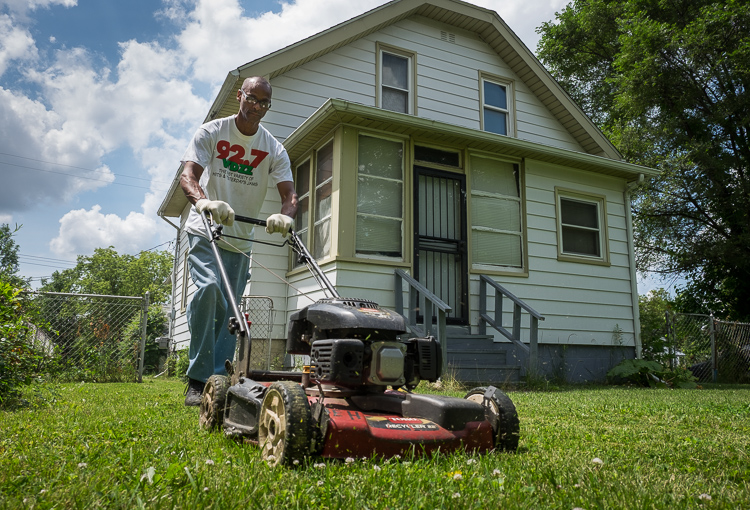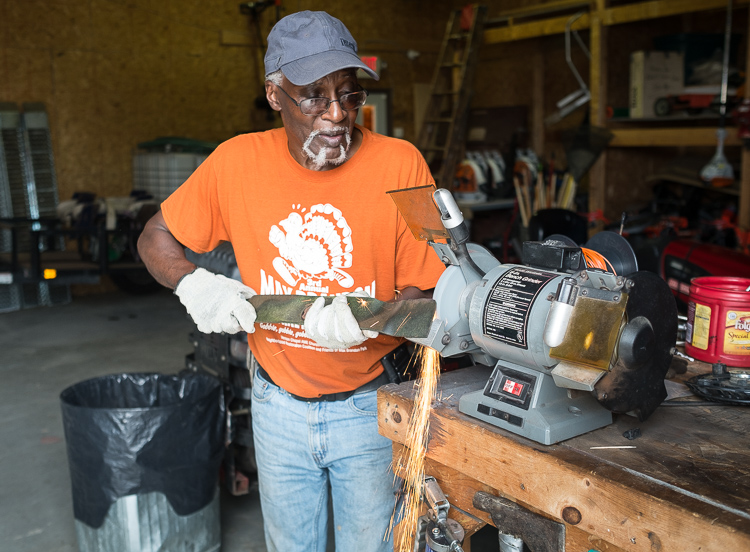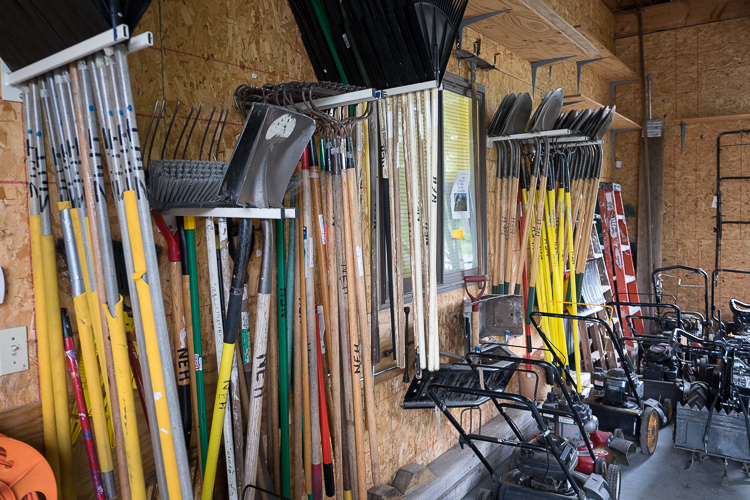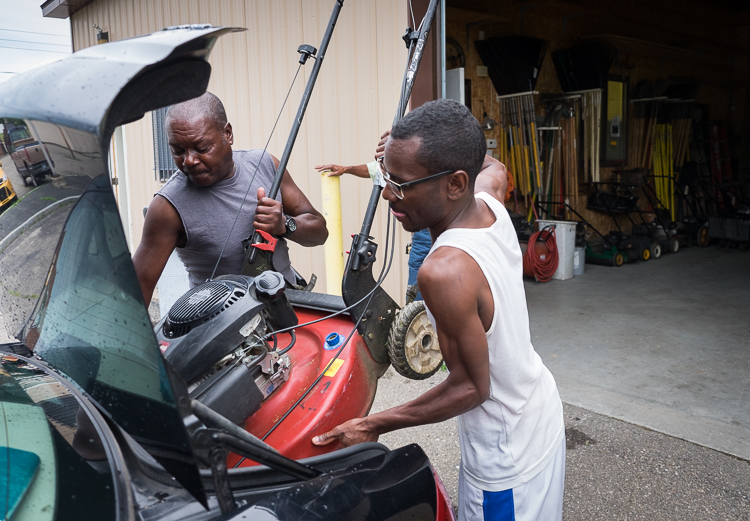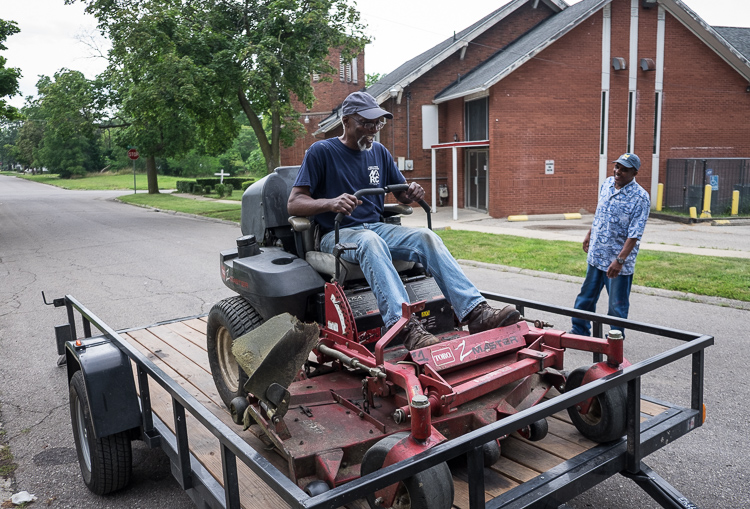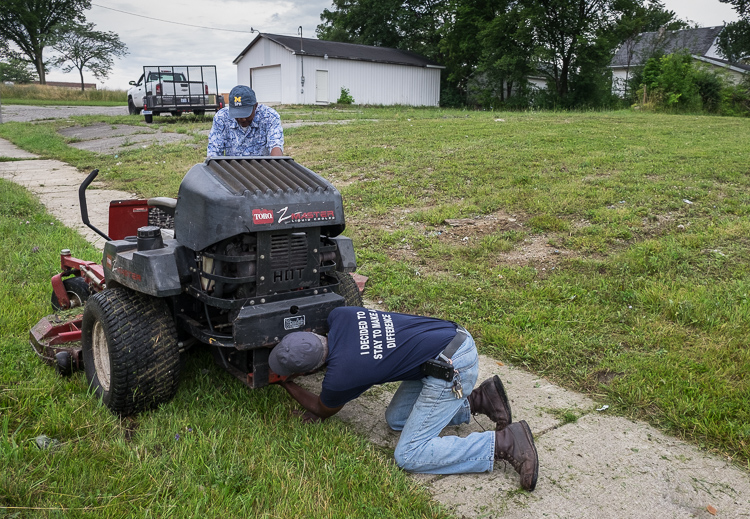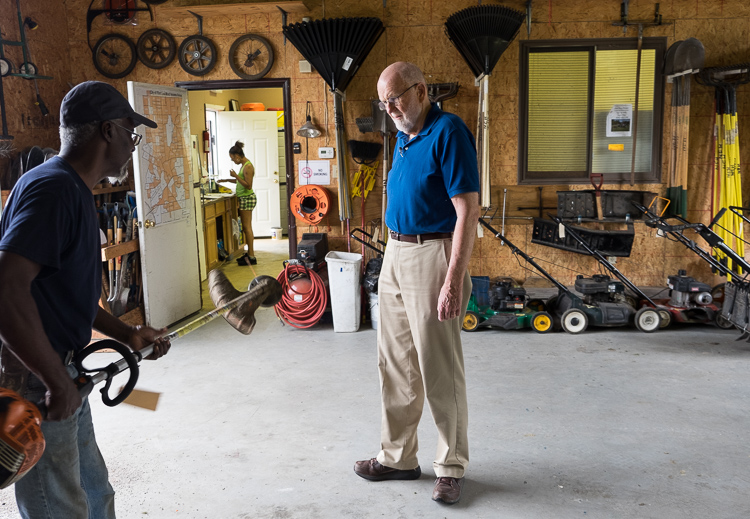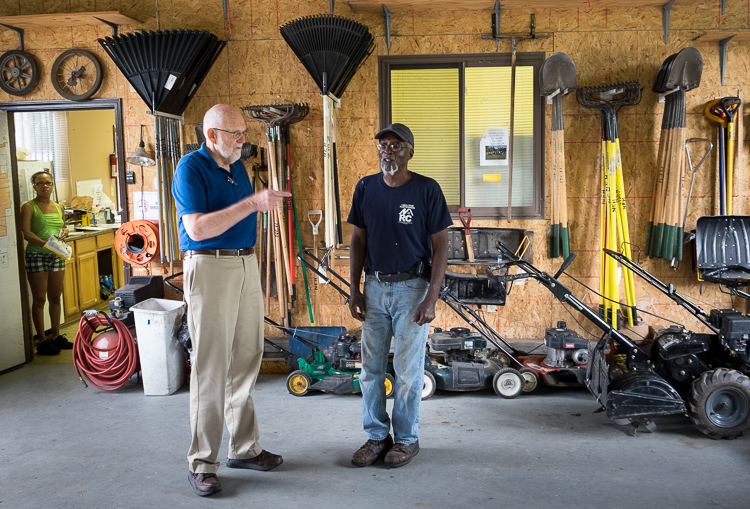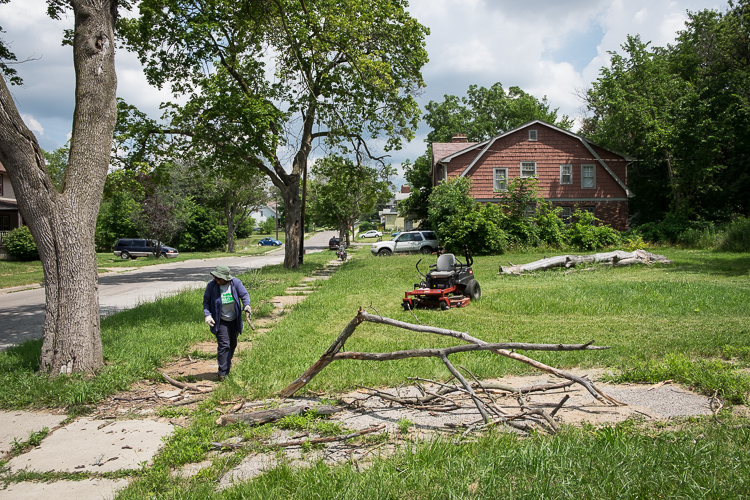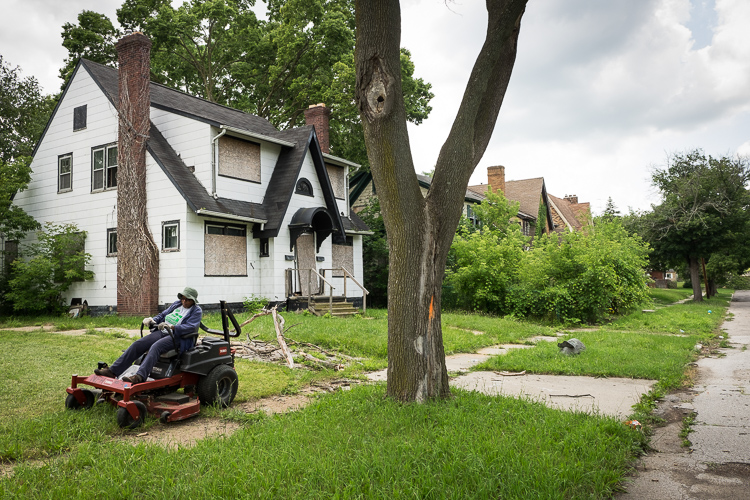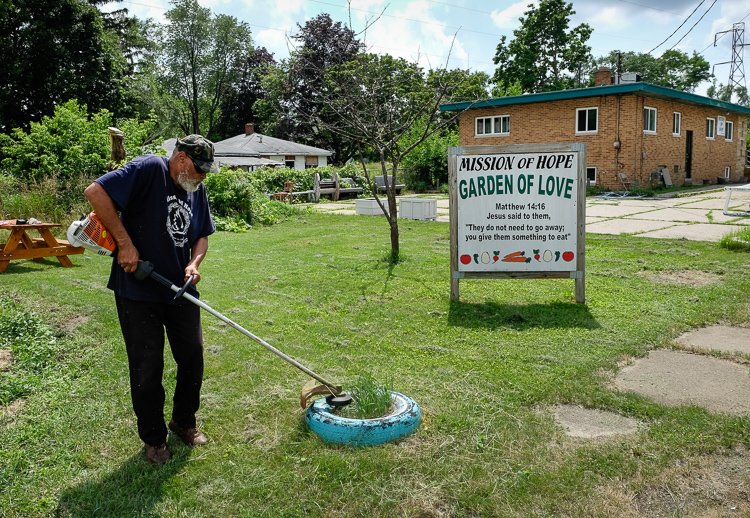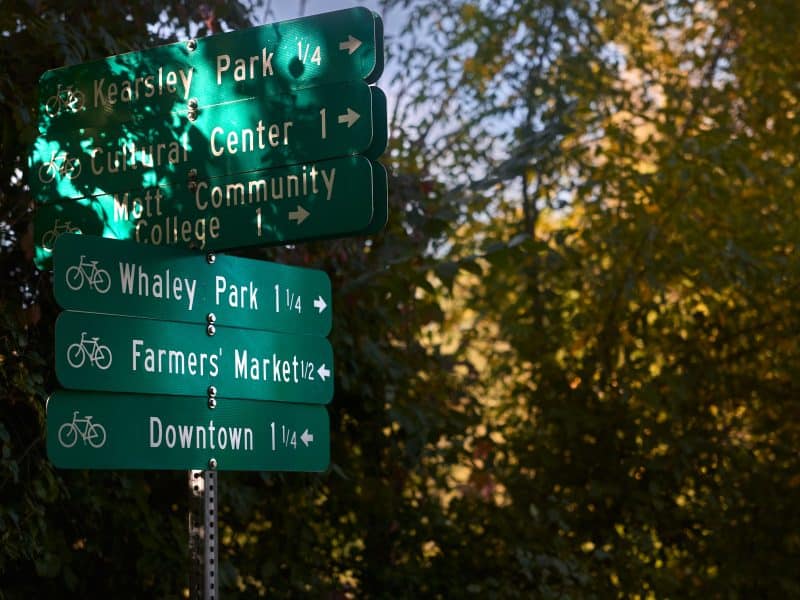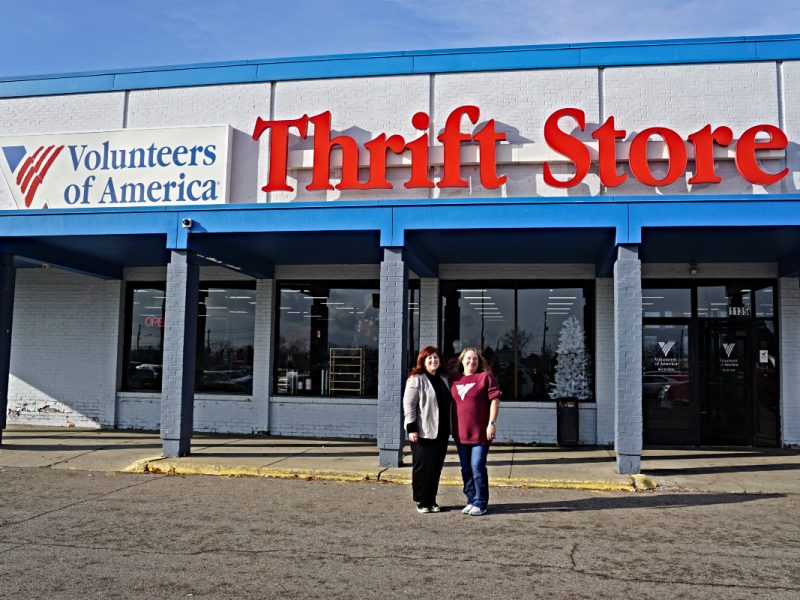Giving us the tools: Flint’s Community Tool Shed helping us finish any and all jobs
A lawn mower, rake, or trimmer—Flint neighbors can always borrow whatever they need from the Community Tool Shed at no (or occasionally very little) cost.
FLINT, Michigan—Today, Quintin Evans is mowing the yard of an elderly woman on Esther Street after borrowing a mower from the community tool shed operated by the Neighborhood Engagement Hub, just three blocks away. “I love my street,” he says. Evans, 56, has lived on Esther Street in Flint on and off since his parents moved here in 1961 when he was 6 months old. Over the decades, he watched his city struggle and watched as some people move away. He looks out now and he gets to work.
“I take care of all the seniors in my neighborhood. One day, I’m gonna be that way too,” he says.
Evans does not own a mower, instead borrowing one from the community tool shed. This is one of three yards he mows for seniors on his street in addition to his own. The tool shed makes it all possible.
The community tool shed is the outgrowth of the now defunct Salem Community Development Corporation, morphing from a collection of tools meant for housing rehabilitation. “Salem just began to accumulate tools including equipment to maintain lots,” says Jim Richardson, a board member with the Neighborhood Engagement Hub in Flint. “Salem went out of business and the Neighborhood Engagement Hub began in 2014 and acquired the assets of Salem,” he says. “The need of the community was changing a lot,” says Richardson.
And, Neighborhood Engagement Hub board member William Alexander says their mission shifted along with those changing needs—“from rehab and demolishing houses to lot maintenance and blight elimination.”
As the vacant houses were demolished, there also was the creation of additional properties with yards that were not being kept. Plus, they found some homeowners who were unable or unequipped to care for their property.
“Neighbors were willing to supply the labor to do it. They were willing to get out there and see what they could do to maintain some of the blight that was creeping up on them up and down their streets,” says Richardson. “It’s all over the area. A bunch of us realized there was no way that government agencies would be able to handle all of this stuff and neighborhood organizations were going to have to step up to get control over what happened to the neighborhood,” he says. “It morphed into our main mission to provide support for neighborhood organizations to carry out the kinds of projects they want to do to provide the quality of life for their community.”
The neighborhood’s willingness to supply the labor did not equate to getting the job done. “We were running into residents and homeowners that had no way to purchase tools in order to keep things cut and they had nowhere to store them,” says fellow board member Joe King. “The tool shed provided that and it was free.”
About 70 percent of the community tool shed’s current $94,000 budget comes from a grant from Community Development Block Grant dollars from the Department of Housing and Urban Development. Additional dollars are raised through private donations. Maintenance, especially, is a big issue because the tools get so much use and wear out quickly, King says.
“It’s about taking care of the community, the surrounding area and their homes. When people see that a neighbor’s lawn is not cut, and they don’t have a lawnmower, they can send them here and get a lawnmower for free,” says community tool shed manager Hurb Pitts.
Residents of the city of Flint are able to use equipment from the community tool shed free or at a nominal fee.
The community tool shed has push mowers, riding lawn mowers and zero turn mowers available. Other equipment available at the community tool shed include rototillers, brush hogs, weed-wackers, wheel barrows and a wide assortment of hand tools. Training classes and lot inspections sometimes are required.
“If the city is going to be rebuilt, there are some things that people in the neighborhoods need to do,” says Alexander. “Maintaining land and blight elimination in our neighborhoods has to be at the foundation of rebuilding the city. … We are doing it because we believe in it and we are invested in it as homeowners. One of the ways we keep the values up is that we participate. We are looking to put value back in the neighborhood and value back in the land.”
Aside from repairing equipment, a recent $5,000 gift from the Lions Club will facilitate the purchase of new lawn mowers—but, says Richardson with a laugh, “we’d love a tractor.”
To find out more about the community tool shed, you can visit www.neighborhoodengagementhub.org/tool-shed

